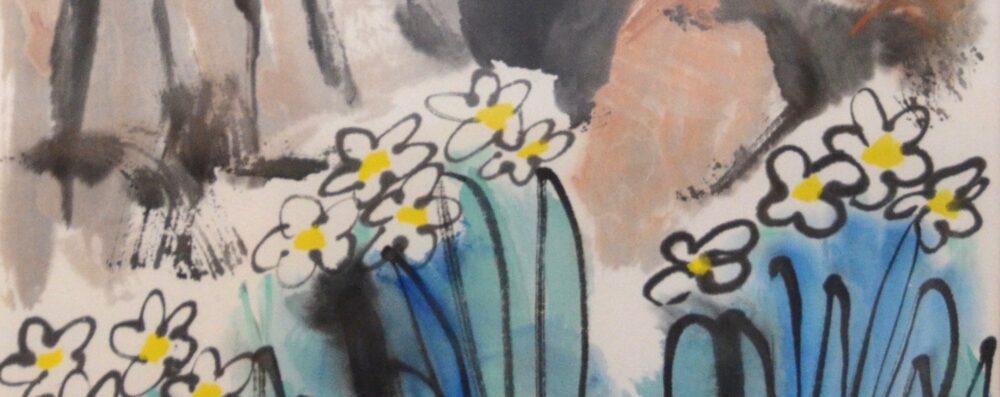The four treasures of the scholar’s study are the tools used for painting, calligraphy and for composing poetry. Ink, an inkstone to grind the ink on, a brush and paper, that is all you need.
The four treasures all have long histories and while it is cheap and easy to obtain what you need for painting, all the four have long cultural histories and are collectors’ items. The art of paper making is old and venerated, and high quality papers are expensive and appealing to connaisseurs. So are ancient and special ink cakes, brushes and ink stones. The web has many sources of supply at reasonable costs. Auctions of oriental art usually include one or several of these treasures. Below you see some examples of brushes, a few ink sticks, and an ink stone carved by Gu Erniang (she is probably the most famous carver of ink stones and made a career in that during the 17th century).
However, it is not enough with ink, inkstone, brush and paper. You also need a few cups to mix ink and water to different shades of black and grey, and if you use clours yet another few cups fto mix colours, water and ink. It is essential to have a felt-mat to place the paper on, otherwise the ink will discolour the surface underneat the paper. It is useful to have weights to keep the paper straight while you work. Below you see a brush stand in bamboo, a cup for mixing ink, coulrs and water, and colours for grinding like the ink sticks (colour is also vailable in tubes).
So we have the four treaures plus an additional few items that are actually necessary to have when you paint. There is more to it, and over the centuries craftsmen have developed things that are useful and enjoyable to have at your side as you paint, for example beautifully carved bamboo containers to place your brushes in, little ceramic cups to carefully drip water to get the right mixture of ink and water, small mountain ranges in bone, ivory or porcelain to place your brushes on while resting. Below are some few examples of delightful utensils that are not strictly necessary, but still pleasant – a seal with two chess players and a ceramic mountain range to rest pencils on.








